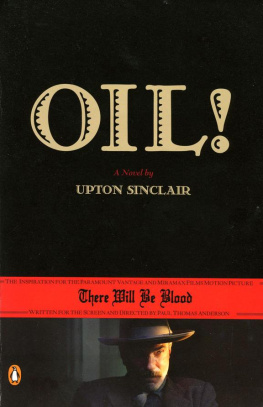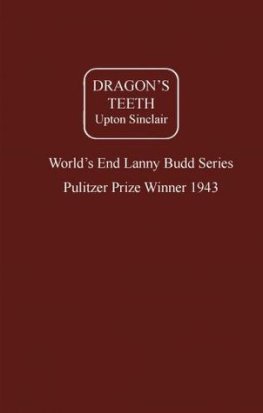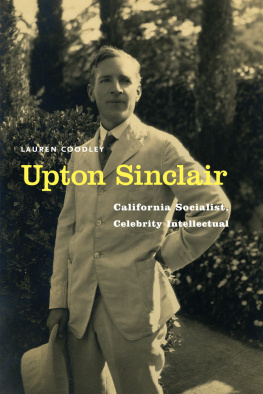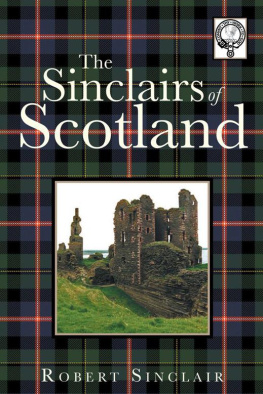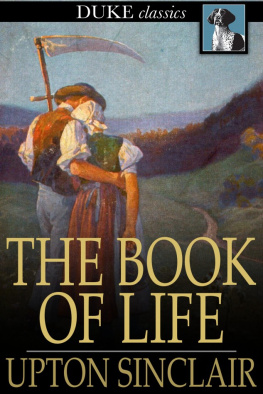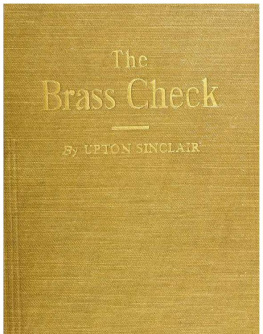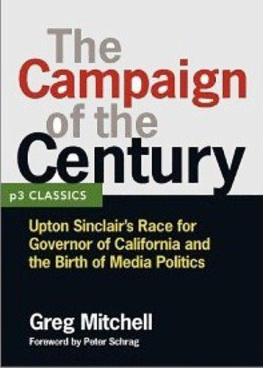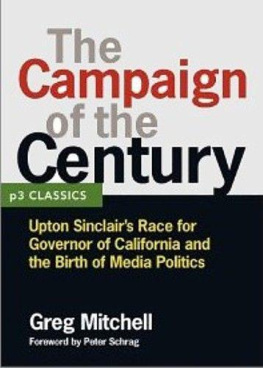I
The road ran, smooth and flawless, precisely fourteen feet wide, the edges trimmed as if by shears, a ribbon of grey concrete, rolled out over the valley by a giant hand. The ground went in long waves, a slow ascent and then a sudden dip; you climbed, and went swiftly overbut you had no fear, for you knew the magic ribbon would be there, clear of obstructions, unmarred by bump or scar, waiting the passage of inflated rubber wheels revolving seven times a second. The cold wind of morning whistled by, a storm of motion, a humming and roaring with ever-shifting overtones; but you sat snug behind a tilted wind-shield, which slid the gale up over your head. Sometimes you liked to put your hand up, and feel the cold impact; sometimes you would peer around the side of the shield, and let the torrent hit your forehead, and toss your hair about. But for the most part you sat silent and dignifiedbecause that was Dads way, and Dads way constituted the ethics of motoring.
Dad wore an overcoat, tan in color, soft and woolly in texture, opulent in cut, double-breasted, with big collar and big lapels and big flaps over the pocketsevery place where a tailor could express munificence. The boys coat had been made by the same tailor, of the same soft, woolly material, with the same big collar and big lapels and big flaps. Dad wore driving gauntlets; and the same shop had had the same kind for boys. Dad wore horn-rimmed spectacles; the boy had never been taken to an oculist, but he had found in a drug-store a pair of amber-colored glasses, having horn rims the same as Dads. There was no hat on Dads head, because he believed that wind and sunshine kept your hair from falling out; so the boy also rode with tumbled locks. The only difference between them, apart from size, was that Dad had a big brown cigar, unlighted, in the corner of his mouth; a survival of the rough old days, when he had driven mule-teams and chewed tobacco.
Fifty miles, said the speedometer; that was Dads rule for open country, and he never varied it, except in wet weather. Grades made no difference; the fraction of an ounce more pressure with his right foot, and the car raced onup, up, upuntil it topped the ridge, and was sailing down into the next little valley, exactly in the centre of the magic grey ribbon of concrete. The car would start to gather speed on the down grade, and Dad would lift the pressure of his foot a trifle, and let the resistance of the engine check the speed. Fifty miles was enough, said Dad; he was a man of order.
Far ahead, over the tops of several waves of ground, another car was coming. A small black speck, it went down out of sight, and came up bigger; the next time it was bigger yet; the next timeit was on the slope above you, rushing at you, faster and faster, a mighty projectile hurled out of a six-foot cannon. Now came a moment to test the nerve of a motorist. The magic ribbon of concrete had no stretching powers. The ground at the sides had been prepared for emergencies, but you could not always be sure how well it had been prepared, and if you went off at fifty miles an hour you would get disagreeable waverings of the wheels; you might find the neatly trimmed concrete raised several inches above the earth at the side of it, forcing you to run along on the earth until you could find a place to swing in again; there might be soft sand, which would swerve you this way and that, or wet clay which would skid you, and put a sudden end to your journey.
So the laws of good driving forbade you to go off the magic ribbon except in extreme emergencies. You were ethically entitled to several inches of margin at the right-hand edge; and the man approaching you was entitled to an equal number of inches; which left a remainder of inches between the two projectiles as they shot by. It sounds risky as one tells it, but the heavens are run on the basis of similar calculations, and while collisions do happen, they leave time enough in between for universes to be formed, and successful careers conducted by men of affairs.
Whoosh! went the other projectile, hurtling past; a loud, swift Whoosh! with no tapering off at the end. You had a glimpse of another man with horn-rimmed spectacles like yourself, with a similar grip of two hands upon a steering wheel, and a similar cataleptic fixation of the eyes. You never looked back; for at fifty miles an hour, your business is with the things that lie before you, and the past is pastor shall we say that the passed are passed? Presently would come another car, and again it would be necessary for you to leave the comfortable centre of the concrete ribbon, and content yourself with a precisely estimated one-half minus a certain number of inches. Each time, you were staking your life upon your ability to place your car upon the exact lineand upon the ability and willingness of the unknown other party to do the same. You watched his projectile in the instant of hurtling at you, and if you saw that he was not making the necessary concession, you knew that you were encountering that most dangerous of all two-legged mammalian creatures, the road-hog. Or maybe it was a drunken man, or just a womanthere was no time to find out; you had the thousandth part of a second in which to shift your steering-wheel the tenth part of an inch, and run your right wheels off onto the dirt.
That might happen only once or twice in the course of a days driving. When it did, Dad had one invariable formula; he would shift the cigar a bit in his mouth and mutter: Damn fool! It was the only cuss-word the one-time mule-driver permitted himself in the presence of the boy; and it had no profane significanceit was simply the scientific term for road-hogs, and drunken men, and women driving cars; as well as for loads of hay, and furniture-vans, and big motor-trucks which blocked the road on curves; and for cars with trailers, driving too rapidly, and swinging from side to side; and for Mexicans in tumble-down buggies, who failed to keep out on the dirt where they belonged, but came wabbling onto the concreteand right while a car was coming in the other direction, so that you had to jam on your foot-brake, and grab the hand-brake, and bring the car to a halt with a squealing and grinding, and worse yet a sliding of tires. If there is anything a motorist considers disgraceful it is to skid his tires; and Dad had the conviction that some day there would be a speed law turned inside outit would be forbidden to drive less than forty miles an hour on state highways, and people who wanted to drive spavined horses to tumble-down buggies would either go cross-lots or stay at home.
II
A barrier of mountains lay across the road. Far off, they had been blue, with a canopy of fog on top; they lay in tumbled masses, one summit behind another, and more summits peeking over, fainter in color, and mysterious. You knew you had to go up there, and it was interesting to guess where a road might break in. As you came nearer, the great masses changed colorgreen, or grey, or tawny yellow. No trees grew upon them, but bushes of a hundred shades. They were spotted with rocks, black, white, brown, or red; also with the pale flames of the yucca, a plant which reared a thick stem ten feet or more in the air, and covered it with small flowers in a huge mass, exactly the shape of a candle flame, but one that never flickered in the wind.
The road began to climb in earnest; it swung around the shoulder of a hill, and there was a sign in red letters: Guadalupe Grade: Speed limit on curves 15 miles per hour. Dad gave no evidence that he knew how to read, either that sign, or his speedometer. Dad understood that signs were for people who did not know how to drive; for the initiate few the rule was, whatever speed left you on your own half of the highway. In this case the road lay on the right side of the pass; you had the mountain on your right, and hugged it closely as you swung round the turns; the other fellow had the outside edge and in the cheerful phrase of the time, it was his funeral.

